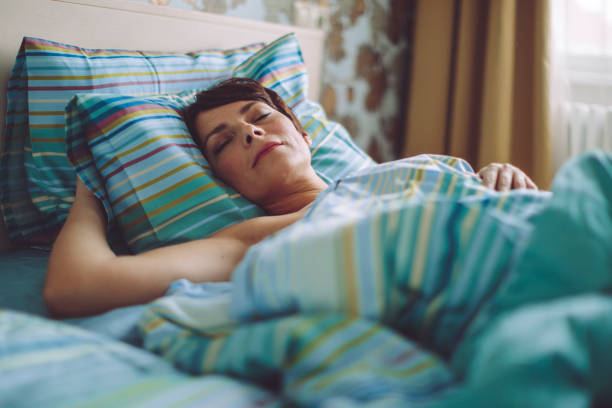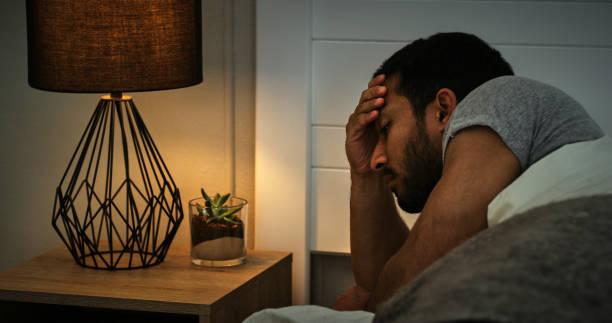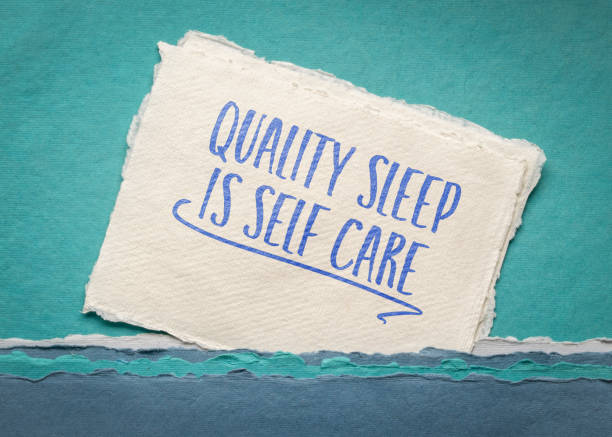Good sleep is essential for overall health, and your eyes are no exception. Many people focus on rest for their bodies but overlook how sleep affects eye health. In this article, we’ll explore the important link between sleep and eye health, why quality sleep matters, and how you can improve both your sleep and eye care.
Why Sleep is Crucial for Your Eyes
Sleep is not just a time for your body to rest but also a time for your eyes to recover and recharge. During sleep, your body heals and repairs itself. The same goes for your eyes. Quality sleep helps maintain eye health by allowing your eyes to rest and restore the moisture and nutrients they need to function well.
How Sleep Affects Your Eyes

- Reduces Eye Strain Eye strain is a common issue caused by looking at screens or reading for long periods. During sleep, the eye muscles relax and recover from the stress they experience throughout the day. This rest helps reduce eye fatigue and prevents long-term damage.
- Prevents Dry Eyes During sleep, your body produces tears that keep your eyes moist and healthy. Dry eyes can lead to irritation, discomfort, and even vision problems. Sleep helps maintain the right moisture levels to protect the sensitive tissues in your eyes.
- Supports Healthy Vision Sleep plays a role in maintaining good vision. During sleep, your eyes can repair damaged cells and rejuvenate the retina, which is essential for clear vision. Lack of sleep can result in blurry vision and even contribute to long-term issues like macular degeneration.
- Helps with Eye Circulation Your eyes are connected to a network of blood vessels that help supply oxygen and nutrients. Proper sleep promotes good circulation, ensuring that your eyes get the nourishment they need to function well. Poor sleep can result in poor circulation, leading to swollen or tired eyes.
The Effects of Poor Sleep on Eye Health

When you don’t get enough rest, your eyes can show visible signs of strain and fatigue. Below are some of the common ways poor sleep can harm your eyes:
1. Dark Circles and Puffiness
One of the most noticeable effects of sleep deprivation is the appearance of dark circles and puffiness under the eyes. Lack of sleep prevents the body from effectively draining excess fluids, leading to swelling around the eyes.
2. Increased Risk of Eye Conditions
Chronic sleep deprivation has been linked to several eye conditions. For example, people who don’t get enough sleep are more likely to experience dry eyes, which can lead to irritation and discomfort. Additionally, long-term sleep problems can increase the risk of conditions like glaucoma and age-related macular degeneration.
3. Blurred Vision
Poor sleep affects the function of the eye muscles and the tear film that covers the surface of your eyes. This can lead to blurred vision and eye discomfort, making it harder to focus or engage in everyday activities like reading or driving.
The Science Behind Sleep and Eye Health
Sleep is vital for the proper function of the nervous system, including the visual system. The visual system includes your eyes and the parts of your brain that process what you see. During sleep, your brain processes and stores visual information. This helps maintain healthy vision and may even improve your eye-hand coordination.
In particular, REM (rapid eye movement) sleep plays a key role in maintaining eye health. REM sleep is the stage of sleep where your brain is most active, and your eyes move rapidly. This phase of sleep is crucial for keeping the eyes healthy and reducing the effects of stress or strain on the eyes.
Tips for Improving Sleep and Eye Health

If you want to take better care of your eyes and improve your sleep, here are some helpful tips:
1. Create a Sleep-Friendly Environment
Your sleeping environment can have a big impact on the quality of your rest. Make sure your bedroom is cool, dark, and quiet. Invest in comfortable bedding and limit screen time before bed to promote better sleep.
2. Stick to a Sleep Schedule
Going to bed and waking up at the same time every day helps regulate your sleep cycle. A consistent sleep routine can help you get the rest you need for healthy eyes and overall well-being.
3. Practice Relaxation Techniques
Stress can interfere with sleep and contribute to eye strain. Before bed, try relaxation techniques such as deep breathing, meditation, or reading to calm your mind and prepare for sleep.
4. Stay Hydrated
Drinking enough water throughout the day is essential for maintaining moisture in your eyes. Dehydration can contribute to dry eyes, so aim to drink at least 8 cups of water per day.
5. Limit Screen Time
The blue light from screens can strain your eyes and make it harder to fall asleep. Try to limit your screen time at least 30 minutes before bedtime to help promote better sleep.
6. Visit an Eye Doctor Regularly
Regular eye exams can help detect early signs of eye problems. Your eye doctor can also provide personalized tips for keeping your eyes healthy, including how sleep may be affecting your vision.
Conclusion
The connection between sleep and eye health is clear: quality sleep is crucial for maintaining healthy eyes. Poor sleep can lead to eye strain, dryness, and even long-term vision problems. By following a few simple tips to improve your sleep, you can give your eyes the rest and care they need to stay healthy and function well.
Remember, your eyes are a vital part of your overall health. Take care of them by getting enough sleep each night, practicing good sleep habits, and seeing your eye doctor regularly. With these steps, you’ll be on your way to better eye health and a more rested, refreshed you.

